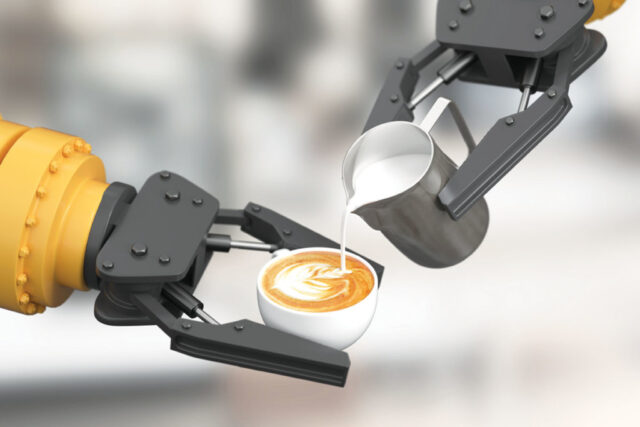Automating food is unlike automating anything else. Food is fundamental to life – nourishing body and soul – so how it’s accessed, prepared and consumed can change societies fundamentally.
Automated kitchens aren’t sci-fi visions from “The Jetsons” or “Star Trek.” The technology is real and global. Right now, robots are used to flip burgers, fry chicken, create pizzas, make sushi, prepare salads, serve ramen, bake bread, mix cocktails and much more. AI can invent recipes based on the molecular compatibility of ingredients or whatever a kitchen has in stock. More advanced concepts are in the works to automate the entire kitchen for fine dining.
Since technology tends to be expensive at first, the early adopters of AI kitchen technologies are restaurants and other businesses. Over time, prices are likely to fall enough for the home market, possibly changing both home and societal dynamics.
Can food technology really change society? Yes, just consider the seismic impact of the microwave oven. With that technology, it was suddenly possible to make a quick meal for just one person, which can be a benefit but also a social disruptor.

Familiar concerns about the technology include worse nutrition and health from prepackaged meals and microwave-heated plastic containers. Less obviously, that convenience can also transform eating from a communal, cultural and creative event into a utilitarian act of survival – altering relationships, traditions, how people work, the art of cooking and other facets of life for millions of people.
For instance, think about how different life might be without the microwave. Instead of working at your desk over a reheated lunch, you might have to venture out and talk to people, as well as enjoy a break from work. There’s something to be said for living more slowly in a society that’s increasingly frenetic and socially isolated.
Convenience can come at a great cost, so it’s vital to look ahead at the possible ethical and social disruptions that emerging technologies might bring, especially for a deeply human and cultural domain – food – that’s interwoven throughout daily life.
With funding from the U.S. National Science Foundation, my team at California Polytechnic State University is halfway into what we believe is the first study of the effects AI kitchens and robot cooks could have on diverse societies and cultures worldwide. We’ve mapped out three broad areas of benefits and risks to examine.
